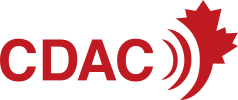
Interpreting Article 12, in The United Nations Convention on the Rights of Persons with Disabilities
Many people who have communication and/or cognitive disabilities report that people who work in healthcare, legal, financial, social and community services often underestimate their capacity to make and/or communicate choices and decisions that matter to them. They report that sometimes:
- Service providers equate their communication challenges as an inability to make decisions and manage their lives;
- Family members and support staff are asked to assist and make decisions about them without their consent;
- They can experience serious barriers and loss of control about what happens in their lives;
- They are not given the communication accommodations and supports they need to understand information, express their views, opinions, choices, make or communicate decisions;
- Service providers do not have information, resources and training about how to identify and provide the communication support they need when using their services.
The United Nations Convention on the Rights of Persons with Disabilities (CRPD) is a human rights treaty intended to protect the rights and dignity of people who have disabilities. Canada ratified the Convention in 2010, which means that Canada must now implement it. There are many articles in the Convention that are significant for people who have communication and/or cognitive disabilities. However, Article 12 is particularly important because it states that people have a right to exercise their capacity to make choices and decisions that affect them and to have the supports that they may need to do this.
For people who have communication and/or cognitive disabilities, Article 12 means having the communication supports they may need in important decision-making situations. For some people that means access to the communication aids and personalized assistance they may need to understand spoken and written information, to express their questions, opinions, and choices, to make and/or communicate decisions. People who have communication and/or intellectual disabilities may need these supports whether they make a decision independently, with assistance from trusted people or if they rely on someone to make a decision on their behalf. Without these communication supports, people who have disabilities may have little or no control over what happens in their lives.
With funding from Employment Social Development Canada, Communication Disabilities Access Canada (CDAC) has produced a free, online resource about Article 12 and the communication supports that people may need to reveal and exercise their capacity and to effectively communicate about matters that are important to them.
The resource contains 5 webinars that can be taken at any time; a number of forms that can be downloaded and used to identify and provide communication supports, and guidelines on the role and responsibilities of persons who support individuals with communication and/or decision-making. The resource is designed for people who work in the disability sector as well as people who have disabilities, family members, support staff, as well as professionals who work in healthcare, legal, justice, social and community services.
Click here to check out our key concepts.
With contributions from people who have a diverse range of experiences and qualifications in communication disabilities, legislation and accessibility – including from people who have disabilities that affect their communication, the online webinars include:
- Communication Disabilities: Barriers and Impact on Choice and Control (Barbara Collier)
- Legal Context for Exercising Capacity and Provision of Communication Supports (Lana Kerzner)
- Communication Supports: Formal, Symbolic Communicators (Barbara Collier)
- Communication Supports: Informal, Non-Symbolic Communicators (Jo Watson)
The webinars are generic, and contain videos and downloadable resources that can be adapted for specific contexts and disabilities. This resource is also available in French.
More information can be accessed at https://www.cdacanada.com/resources/communication-supports-in-exercising-capacity-and-autonomy/about.
We hope you find the resource useful and we welcome your feedback at admin@cdacanada.com.
Barbara Collier Reg. CASLPO, F. ISAAC
Executive Director
Communication Disabilities Access Canada (CDAC)
Website | Facebook | Twitter
barbaracollier.cdac@gmail.com
